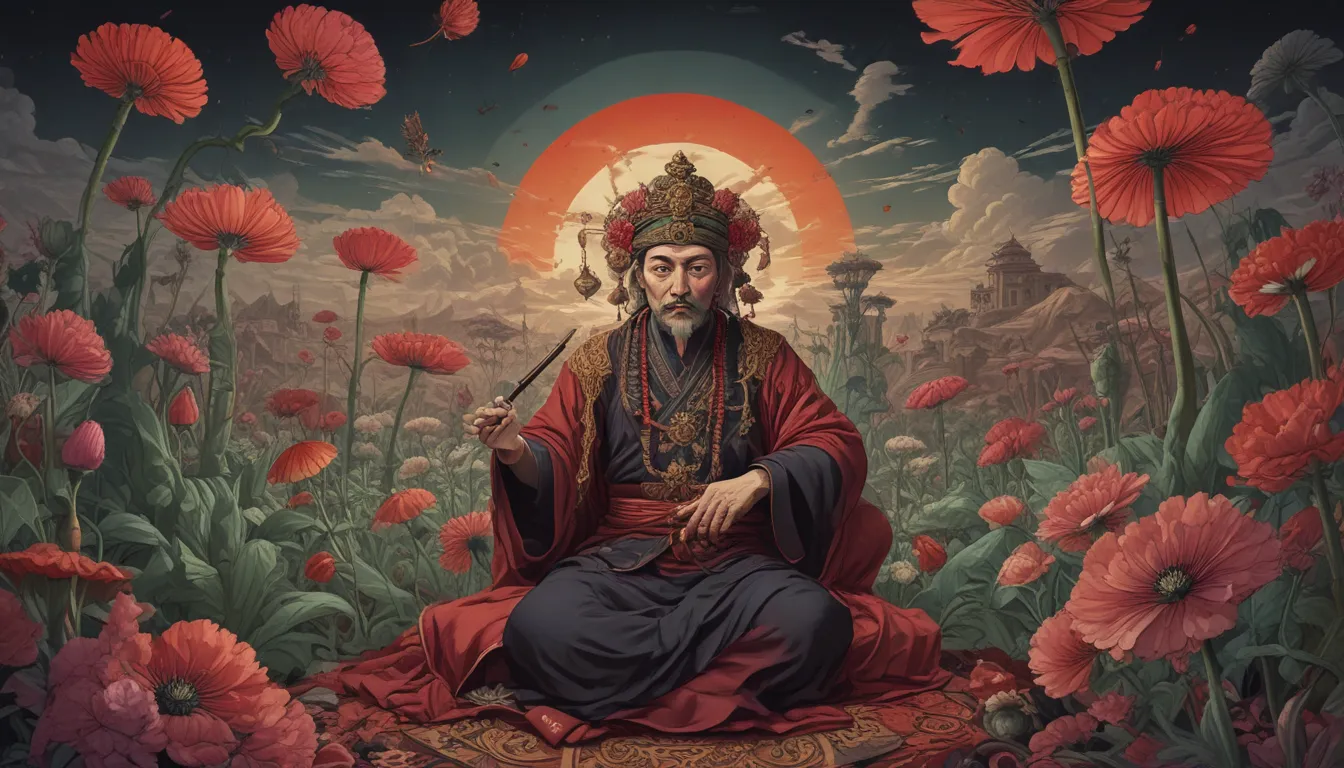The images in our articles may not match the content exactly. They are used to grab your attention, not to show the exact details in the text. The images complement the text but do not replace it.
Are you eager to delve into a significant historical event that transformed international relations and left a lasting imprint on China and the Western world? The Opium Wars, which took place in the mid-19th century, offer a compelling narrative of power struggles, trade dynamics, and conflicts that shaped the course of history. Beyond the opium trade, these wars delved into issues of sovereignty, trade imbalances, and the collision of civilizations, setting the stage for a new era in Asian-European relations. Join us on a journey through 20 captivating facts about the Opium Wars, illuminating their origins, key events, and enduring consequences. Whether you’re a history enthusiast or simply curious about this crucial period in global history, these facts will provide valuable insights into how past events continue to influence present-day international dynamics.
Unraveling the Roots of the Opium Wars
The Opium Wars marked significant conflicts between China and Western powers, notably Britain, during the 19th century, leaving a profound impact on their relationship.
-
The Opium Trade: In the late 18th century, British merchants initiated the exchange of Indian-grown opium for Chinese commodities like tea, silk, and porcelain. Although lucrative for the British, this trade inflicted severe societal harm in China, fueling widespread addiction.
-
Chinese Resistance: Responding to the opium crisis, the Qing Dynasty made efforts to curb the opium trade. In 1839, Chinese authorities seized and destroyed over 20,000 chests of opium in Canton (Guangzhou), a pivotal trading hub, triggering the onset of the First Opium War.
The First Opium War (1839-1842): A Clash of Economic Interests
The First Opium War stood as a pivotal confrontation between the Qing Dynasty and Britain, highlighting tensions over economic interests and sovereignty.
-
Nautical Dominance: Leveraging its advanced naval technology, the British Royal Navy easily overpowered Chinese forces, underscoring the technological disparity between China and the West.
-
Treaty of Nanjing: The conflict culminated in 1842 with the signing of the Treaty of Nanjing, marking China’s first “unequal treaty” with a Western power. The treaty entailed the cession of Hong Kong to Britain, opening of five Chinese ports to British trade, and granting extraterritorial rights to British citizens in China.
The Second Opium War (1856-1860): Escalating Tensions and Foreign Influence
The Second Opium War further laid bare the vulnerabilities of the Qing Dynasty and deepened foreign encroachment in China.
-
Origins of Conflict: The war erupted following the boarding of a Chinese vessel by the British in 1856, ostensibly to combat piracy. This incident, known as the Arrow Incident, escalated hostilities and led to full-scale warfare.
-
Multinational Intervention: Britain was later joined by France, the United States, and Russia in a concerted multinational campaign against China.
-
Treaty of Tientsin: The war concluded in 1858 with the signing of the Treaty of Tientsin, which expanded the opening of Chinese ports to foreign trade, legalized the opium trade, and granted foreign envoys residency rights in Beijing.
Enduring Impacts of the Opium Wars: Shaping China’s Trajectory
The Opium Wars left indelible imprints on China and its global relations, reshaping its trajectory in the aftermath of these conflicts.
-
Imperial Decline: These wars signaled the onset of decline for the Qing Dynasty, laying bare its military inadequacies and contributing to its eventual collapse in 1912.
-
Century of Humiliation: Post-Opium Wars, China experienced what is often termed the “Century of Humiliation,” marked by foreign dominance, territorial concessions, and internal turmoil.
-
Legalization of Opium: Following the Second Opium War, the legalization of opium exacerbated addiction and societal woes in China.
-
Nationalist Resurgence: The humiliation and losses endured during the Opium Wars fueled a resurgence of nationalism in China, driving calls for reform and modernization.
-
Global Integration: Treaties stemming from the wars opened China to global trade, integrating it into the international economy while exposing it to external influences and controls.
-
Extraterritorial Rights: Western powers, alongside Japan, secured extraterritorial rights in China, subjugating their citizens to their own legal systems and eroding Chinese sovereignty.
-
Hong Kong Legacy: The handover of Hong Kong to Britain had long-lasting repercussions, with the territory remaining under British rule until its return to China in 1997 under the “one country, two systems” principle.
-
Cultural Exchange: Despite the conflicts, the Opium Wars fostered increased cultural exchange between China and the West, introducing Western education, science, and technology to China.
-
Military Modernization: China’s defeats underscored the imperative of military modernization, propelling efforts to strengthen its armed forces during the late 19th and early 20th centuries.
-
Legal Precedents: The Opium Wars played a role in shaping international law, particularly in terms of prisoner treatment and warfare conduct.
-
Impact on Drug Policies: The aftermath of the Opium Wars influenced global attitudes toward drugs and spurred initiatives for international cooperation in drug control.
-
Diplomatic Foundations: These conflicts marked the initiation of formal diplomatic ties between China and Western nations, laying the groundwork for future engagements and negotiations.
-
Historical Contemplation: Today, the Opium Wars serve as subjects of contemplation and study, serving as poignant reminders of imperialistic repercussions and emphasizing the value of mutual respect in international relations.
Reflecting on the Legacy of the Opium Wars
Venturing into the annals of history, the Opium Wars unveil intricate layers of conflict that transcend mere battles, illuminating profound impacts on global relations, trade dynamics, and cultural interchange. These clashes between China and Western powers ushered in transformative shifts, permeating foreign influences and reshaping China’s course. Exploring the Opium Wars not only exposes the complexities of colonial endeavors and trade dynamics but also underscores the resilience of cultures in the face of adversity. As we ponder these historical events, let us glean wisdom from the past and emphasize the significance of upholding sovereignty and nurturing mutual understanding in our interconnected world. The Opium Wars serve as more than historical anecdotes; they embody the challenges and opportunities of our global landscape, beckoning us to learn from the past as we navigate the complexities of the present and future.
Seeking Your Feedback
Our dedication to delivering credible and engaging content remains unwavering as we strive to provide you with valuable insights and knowledge. Each fact presented on our platform is sourced from real users, enriching our content with diverse perspectives and information. To uphold the highest standards of accuracy and reliability, our team of editors meticulously reviews every submission, ensuring that the facts shared are both captivating and trustworthy. As you embark on your exploration and learning journey with us, rest assured in our commitment to excellence and authenticity. Trust in our pursuit of quality as we continue to offer you enriching experiences and insights.






